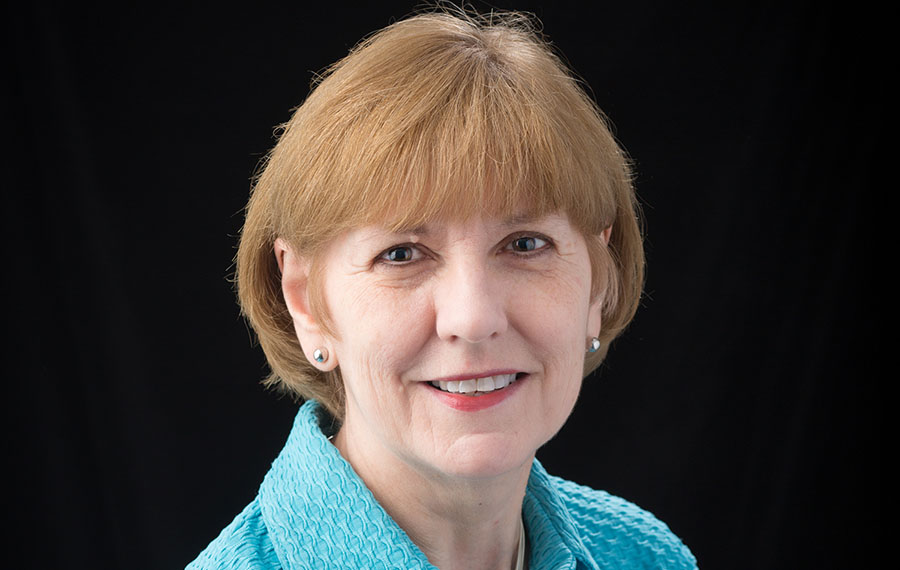Jean Bernard, Ph.D., M.S.N., R.N. worked in a variety of clinical settings as a nurse before becoming a college professor, serving patients of open heart surgery and dialysis, among others. She joined Appalachian State University’s Department of Nursing in 2016 as undergraduate program director after a longtime career teaching and supervising clinical work at Tennessee Wesleyan College. She is among the many Appalachian faculty who create life-changing experiences in the classroom and beyond.
- What excites you about the nursing profession?
-
I’ve been in nursing for a long, long time, and I really enjoyed working with patients who were frightened — being able to talk to them and their families about what to anticipate, and helping them in their first postoperative hours. I enjoyed both the technical and emotional aspects and helping their families through that hump.
I think that’s what makes nursing so unique — nurses are on the frontline with the patient. The physician leaves, but the nurse is there for 12 hours. To me, it has always been fulfilling to identify a problem and take care of it. Oftentimes, nurses are the first to let the physician know a patient is in trouble. I love that aspect of being the eyes and ears, the advocate, for a patient.
- What do you love most about teaching?
-
I love watching students transition from a student to a professional, discovering how what they have learned in class plays out in the clinical arena. When they come back and say, “Dr. Bernard, today I saw what we talked about last week and you were right about those symptoms, I saw them,” is just incredible.
I’ve been in nursing long enough where I’ve watched students graduate and then practice for a couple years and move up and become a nursing manager or nurse practitioner. There are so many bright, capable caregivers. I love that.
In the classroom, I use active learning strategies. I’m rarely behind a podium. I’m talking with students and interacting. Taking the content and beginning to make it real and applicable to the care of a patient is, to me, exciting.
- What do you want your students to take away from your teaching?
-
I hope they take away a real passion for the profession and a recognition of the multiple dimensions required of being a professional nurse. In our program, we focus on the acronym C-O-M-M-I-T, which stands for critical thinking and compassion, organization, maturity, motivation, integrity and teamwork.
- Why should prospective students interested in nursing choose Appalachian?
-
Two things come to mind. One, because of our location, students have to go off the mountain for their clinicals. The good thing about that is they are exposed to the wide variety of strong, clinical experiences — you’re in a small rural hospital, you’re in a major trauma center in a highly populated area and everything in between.
The second thing is the commitment of the faculty. At Appalachian, there’s a real nurturing investment in the success of students. We make a point to know them in the classroom, in the clinical setting and as people. Faculty also take students on service trips to New York City and South America to experience cultures outside of what they may find in Boone. We work hard to make sure students are really prepared to be the nurses they need to be in the workplace.
About the Beaver College of Health Sciences
Appalachian State University’s Beaver College of Health Sciences (BCHS), opened in 2010, is transforming the health and quality of life for the communities it serves through interprofessional collaboration and innovation in teaching, scholarship, service and clinical outreach. The college enrolls more than 3,600 students and offers 10 undergraduate degree programs, nine graduate degree programs and four certificates across seven departments: Kinesiology, Nursing, Nutrition and Health Care Management, Public Health, Recreation Management and Physical Education, Rehabilitation Sciences, and Social Work. The college’s academic programs are located in the Holmes Convocation Center on App State’s main campus and the Levine Hall of Health Sciences, a state-of-the-art, 203,000-square-foot facility that is the cornerstone of Boone’s Wellness District. In addition, the college supports the Appalachian Institute for Health and Wellness and has collaborative partnerships with the Wake Forest University School of Medicine’s Physician Assistant Program, UNC Health Appalachian and numerous other health agencies. Learn more at https://healthsciences.appstate.edu.
About Appalachian State University
As a premier public institution, Appalachian State University prepares students to lead purposeful lives. App State is one of 17 campuses in the University of North Carolina System, with a national reputation for innovative teaching and opening access to a high-quality, cost-effective education. The university enrolls more than 21,000 students, has a low student-to-faculty ratio and offers more than 150 undergraduate and 80 graduate majors at its Boone and Hickory campuses and through App State Online. Learn more at https://www.appstate.edu.
What do you think?
Share your feedback on this story.





![How NCInnovation Is Rethinking Economic Development in North Carolina [faculty featured]](/_images/_posts/2026/02/rethinking-economic-development-600x400.jpg)






